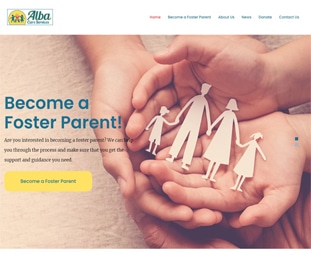Being a foster parent is a challenging but rewarding experience, but there may be times when challenges arise or you encounter a foster child who is difficult to care for and needs extra support. This can be due to various factors like traumatic experiences in their past caused by physical abuse, developmental disorders, or simply the adjustment to a new home. It is important to remember that every child is different, and placing labels such as “difficult” can do more harm than good. In this guide, we will discuss some ways to understand and deal with difficult children in foster care, with the hope of enhancing your experience as a foster parent.
Understanding Your Foster Children
By gaining a deep understanding of adopted and foster children, you can better help them cope with their difficulties, and provide therapeutic parenting methods that help foster youth to build trust and feel safe in their new environment.
Ask yourself questions such as, “What kind of experiences have they had in the past?” or “How has this affected their behavior?” Once you’ve identified potential sources of difficulty in your foster child’s history, you can start to establish a dialogue and create an environment where your foster children feel more comfortable.
Causes of Challenging Behavior

Be patient with your foster children, and try to understand their behavior in the context of their past experiences. It’s important to remember that even if they are exhibiting challenging behaviors, it doesn’t mean they aren’t capable of change or growth.
Many of the youth in foster care have experienced loss or abuse, been neglected, or experienced trauma that caused them to be removed from their birth family. It’s important to recognize that these experiences will shape their behavior.
To provide the best care, foster parents must make an effort to understand the child’s background and be patient with them as they work through their emotions and frustrations.
Practice Patience and Empathy
Difficult behaviors like disobedience, aggression, or withdrawal can be frustrating, but it is important not to take it personally and to keep a positive attitude. Foster children may have experienced neglect or abuse in their previous homes, which can lead to mistrust, fear, anger, and issues with self-esteem.
Instead of punishing problematic behaviors and reacting harshly, try to practice patience, empathy, and other positive behavior management strategies. Explain why certain behaviors are not acceptable, and offer comfort and reassurance when needed. Show that you care and are willing to listen to them without judgment.
Positive behavior management strategies are more effective than physical punishment in teaching young children how to behave in a healthy and acceptable way, so foster families should look for opportunities to give praise and rewards when their foster children display positive behavior.
Grandma’s Rule of Discipline
Also known as the “Premack Principle”, this method of reinforcing desired behaviors works by linking less preferred tasks with favorite activities. The rule is framed as “You can do what you want to do after you do what I want you to do.” This approach encourages children to complete their responsibilities or behave appropriately to earn rewards, and it can be particularly effective with foster kids.
For instance, if a foster child is hesitant to do their homework, the rule could be applied as “Once you finish your homework, you can play video games”. This strategy makes the completion of homework a prerequisite for the more desirable activity of playing video games. It encourages compliance with house rules and the fulfillment of responsibilities, while also offering the child a sense of control over their actions.
In the context of foster care, it’s essential to note that this rule should be implemented with a lot of sensitivity and understanding. Many foster children have had traumatic experiences, and punishments can often exacerbate their stress or anxiety.
When dealing with behavioral issues, a positive approach and clear boundaries encourage good behavior without resorting to consequences. However, the rewards should be reasonable and relatable to the child’s interests. Always remember to show empathy and understanding while implementing this rule, keeping the child’s past experiences and feelings in mind.
Provide a Safe and Structured Environment
Stability and routine can help foster children feel secure and trust their foster parents. Establish clear rules and expectations, and enforce them consistently. Create a structured routine for meals, sleep, chores, and recreational activities. Keep the environment safe, clean, and free from violence or abuse, and report any incidents in a timely manner. Ensure the child’s privacy and boundaries are respected, and allow them to have their personal items and space.
Show Unconditional Love and Acceptance
Ultimately, the most important thing you can provide to your foster child is love and acceptance. Regardless of their behavior or history, love and acceptance can help heal their wounds and build their resilience. Show them love through physical affection, positive reinforcement, and spending quality time together. Accept them for who they are, and celebrate their strengths and accomplishments. Encourage their interests, hobbies, and aspirations. Be their advocate and support their rights, even if it means challenging certain systems or institutions.
Seek Professional Foster Care Support
If you are having trouble managing your foster child’s challenging behaviour, don’t hesitate to seek professional assistance. Speak with your social worker for guidance, a foster care agency, or contact a mental health specialist who can assess the child’s needs and provide specialized care.
With patience, empathy, and understanding, you can create a safe environment for your foster children where they can thrive. Show them that they matter and that you value them as individuals, no matter how challenging the situation may be. Your efforts can make a significant difference in their lives and help them to become successful adults.
About Alba Care Services
Alba Care Services is a premier foster care agency based in California that is deeply committed to its mission of offering compassionate, comprehensive care to foster children and their families. With a reputation for excellence, Alba Care Services has been a trusted name in the field of foster care for many years, placing a strong emphasis on creating supportive and nurturing environments for children in need.
Possessing a team of seasoned professionals, Alba Care Services ensures that foster parents are provided with the necessary training and resources to effectively care for their foster children. The agency excels in providing professional support to foster parents, ranging from social workers’ guidance to access to mental health specialists. By prioritizing the welfare of the foster child, Alba Care Services builds bridges that connect children with loving homes, helping them to overcome their past and nurture a brighter future.
Becoming a Foster Parent!
If you are interested in becoming a foster parent or adoptive parent, Alba Care Services can help you build a strong, supportive family. Contact us today to learn more about our foster care and adoption services! We look forward to helping you create a brighter future for your foster children!





